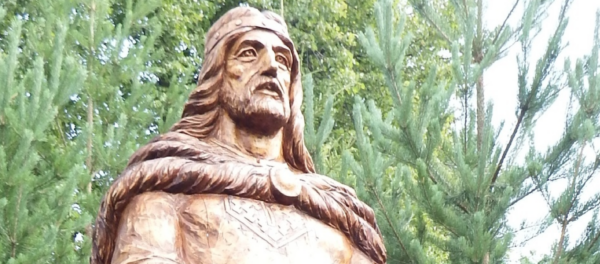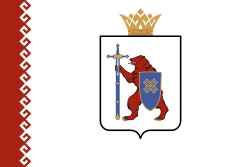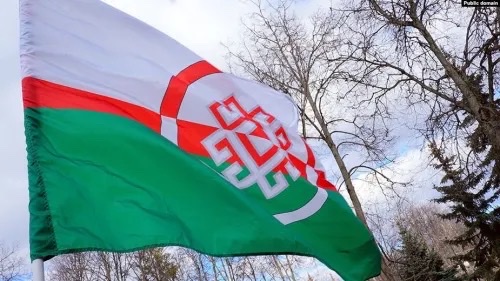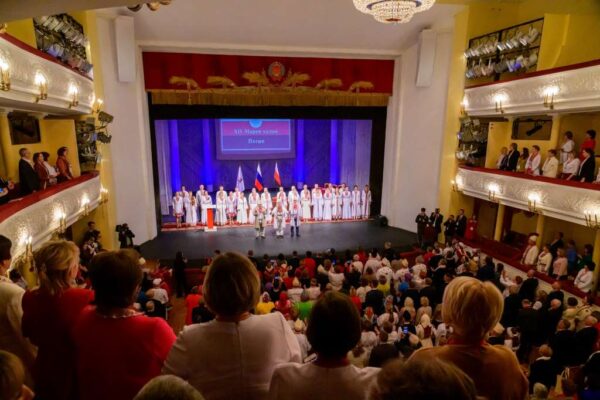Russian authorities want to silence Stalin’s repression
By the decision of the Supreme Soviet of the Russian SFSR on October 18, 1991, October 30 was declared the Day of Remembrance of the Victims of Political Repression. However, in the Russian Federation, the day was also celebrated this year.
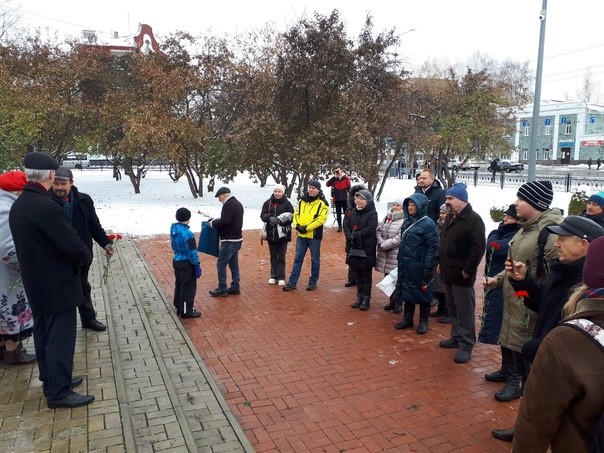
On October 30, 1974, human rights activists (dissidents) in the apartment of academician Andrei Sakharov informed him that prisoners in Mordovia and Perm Oblast had started a hunger strike and were demanding political prisoner status.
It must be admitted that this day is being celebrated in an increasingly modest way, no longer by members of government, but mainly by local government employees. Nor is it certain that the day would be celebrated at all today if the Orthodox Church did not organise prayers commemorating the innocent dead.
In addition, there has been a trend in recent years of destruction and looting of memorials to victims of repression. Writings justifying the repression and praising Stalin’s actions are increasingly appearing. In 2021, Memorial, an association dedicated to researching the repression and commemorating the victims, was placed on the list of foreign agents. The Prosecutor’s Office reported that the organisation ‘creates an image of the USSR as a terrorist state and rehabilitates Nazi criminals’. In recent years, however, the reference to the Day of Remembrance of the Victims of Repression has disappeared from the calendar.
How do Finno-Ugric peoples and their organisations mark the Day of Remembrance of the Repressed? It turns out that almost none of the national organisations considered it important, with the exception of the Mari Ushem – Mari Union. Yet it is a very important day to remember the national elite of the Finno-Ugric peoples who were victims of the repression of the 1930s.
The Day of Remembrance of those who died in the repressions was also not considered significant by the local newspapers of the republics, neither in Russian nor in the national languages.
To some extent, the day’s celebrations can be traced through the social network VKontakte.
Here is an entry by a young Mari national activist Viktor Novogorsky on his VKontakte account on 1 November 2023 (also visible on 1 Nov in Facebook under Viktor Novogorsky’s account):
‘On the cold morning of 30 October, Mari activists, patriots and veterans gathered at the Memorial to the Victims of Repression in Yoshkar-Ola to commemorate the victims of Stalin’s repressions. We were united on that day, but every year the number of those gathered dwindles, reflecting what is happening in society – the tightening of screws and the silent press. There was no permission to hold a rally, no microphone, no bus to take us to the places of execution and burial.
For the fourth year now, I have been standing at the memorial wall of the victims to pay tribute to the representatives of the intelligentsia, the personalities, who came from the Mari people and were murdered. I am here as a representative of the entire ethnos, a representative of the young, who know and remember the tragedy of the 20th century, the catastrophe of the small Mari people: In Stalin’s repressions, the Mari people lost 90 per cent of its elite, including the best – from the writers Chavain and Olyk Ipai, Osyp Shabdar to Timofei Yevseyev.
For me, the repressions have a personal and important meaning, because my grandfather turned out to be a kulak and was punished twice in different camps and deportation places.
People brought carnations to the memorial, made speeches and commemorated what had happened. I note Nikolai Araksheev, director of the GULAG Museum, a researcher and historian of the repressions, a hero of our times, who every year organises a flower-laying ceremony as a symbol of remembrance of those who were killed, a tour of the place of death in the Mendurov Forest and tells people about what happened.
The memory must live on, generations must remember, it is our history….’
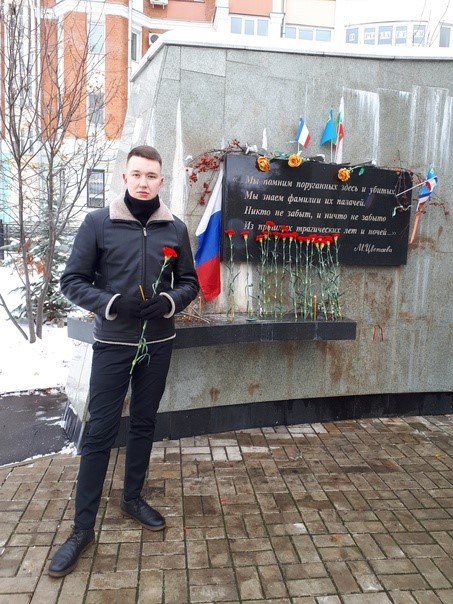
Ironically, 2023 in Yoshkar-Ola was not without repression. Kirill Voitovich was detained by law enforcement agents for placing a poster in his own language on the memorial wall commemorating the Belarusian writers shot on 29–30 October 1937.
